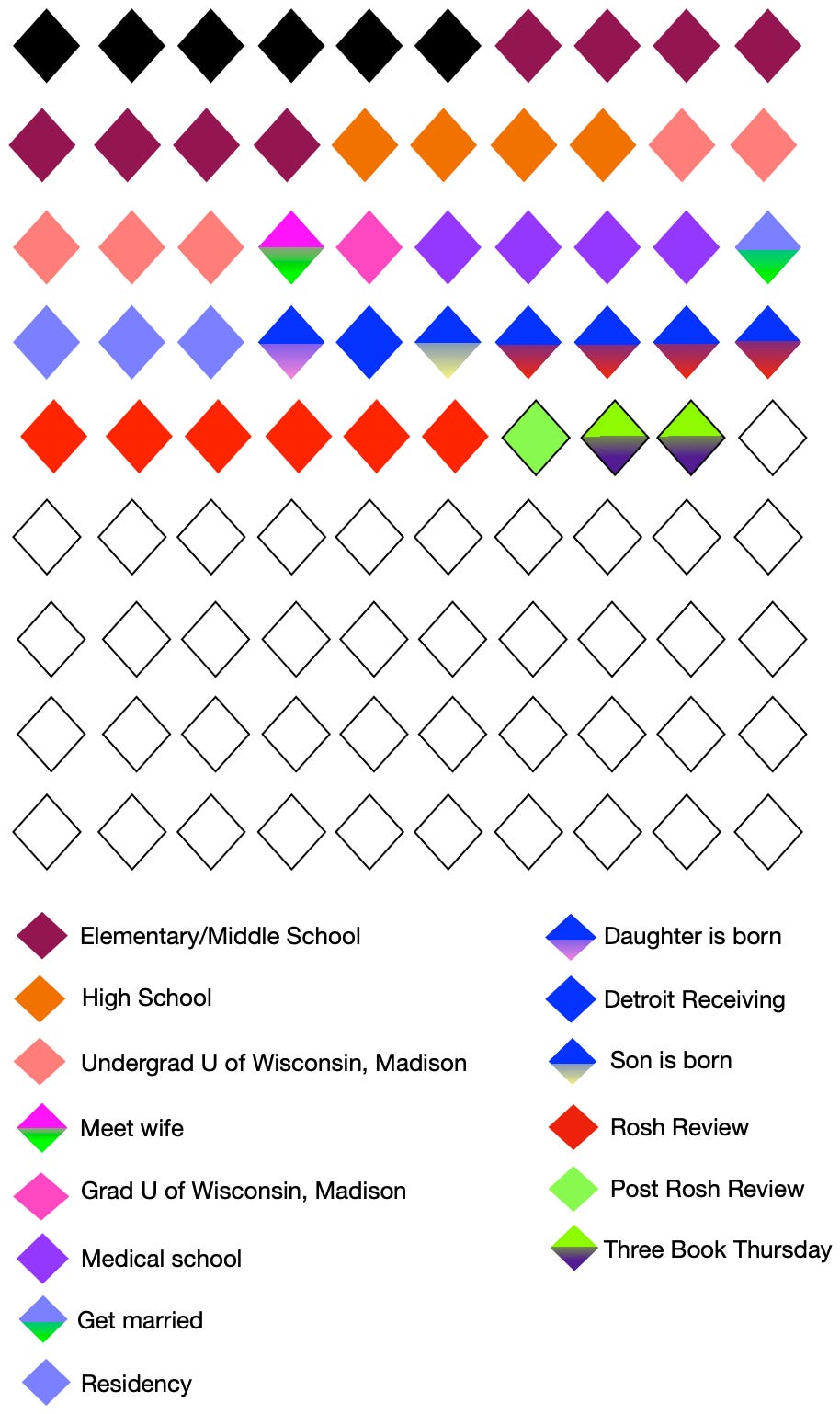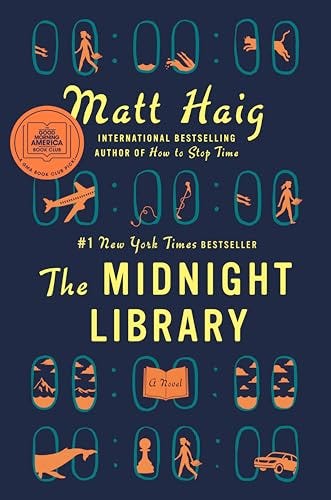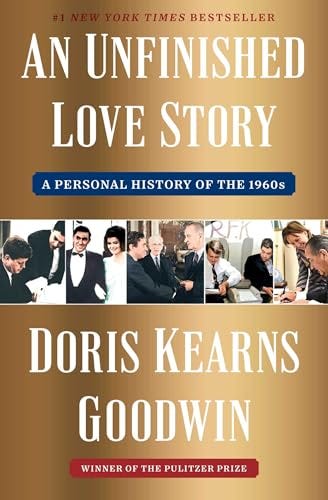Your Life in Diamonds: Embracing Regret, Choice, and the Moments That Matter
Books that changed my thinking, behaviors, and life
Hello,
If you haven’t encountered Tim Urban’s work, you’re in for something special. Tim has a rare gift for taking life’s most complex, overwhelming ideas and distilling them into something strikingly simple and unforgettable. His 2014 blog post, Your Life in Weeks, is one of those rare pieces that hits you like a bolt of lightning—and then lingers, reshaping the way you see time, life, and everything in between.
I came across that post again three years ago, and it stopped me in my tracks. Tim lays out a human life as a grid—10 diamonds across and 9 down—each one representing a single year. If you’re fortunate enough to live to 90, that’s 90 diamonds.
At first, the grid feels abundant, full of space and potential. Then I began filling it in with colors—diamond by diamond—and it became a reflection of the chapters of my life.
My grid stared back at me: the first six years, diamonds filled with playful, unfiltered fun, where the biggest concerns were what game to play next or how to make the perfect fort. Then came the long streak of middle school and high school—years often tangled in meaningless perceived struggles, filled with angst and self-doubt. Then college, a blur of restlessness and growth; grad school and medical school, the grind and the triumphs; residency, where my identity as a doctor was forged in the fire. My early career. Fatherhood. Marriage. Entrepreneurship.
Suddenly, those rows that once felt endless were gone, already lived. When you see your life laid out like this, it’s sobering. There’s no escaping the reality: the rows fill faster than you think.
It’s easy to get overwhelmed by that realization—to feel the weight of time rushing by. Maya Angelou captured it perfectly: “Life is going to be short no matter how long it is.”
That truth hits like a gut punch. It’s not just poetic—it’s practical. Life, at its core, is fleeting. And that fleeting nature can leave you stuck, staring at the grid, wondering: How much time do I really have left?
But here’s the thing: those filled diamonds—they’re not just years passed. They’re years lived. Each one carries the weight of memories, relationships, struggles, laughter, and quiet triumphs.
And the empty ones? They’re not a countdown—they’re a canvas.
The world often sells us on the idea of bucket lists and “seizing the day” through grand adventures. Don’t get me wrong—big dreams have their place.
But when I think about the moments that matter most, they’re not the ones I can brag about on social media or cross off a list. They’re the small, ordinary moments: dinners that turn into hours of conversation. Helping my kids figure out life’s curveballs. Catching a Yankees game with childhood friends. A late-night phone call with my 82-year-old father. Rewatching Ted Lasso with my wife and still laughing at all the same parts.
Kierkegaard said, “Life must be lived forwards but can only be understood backwards.” The filled diamonds tell your story—the kind you can only fully appreciate when you look back. The empty ones? Those are your next chapter, and how you choose to fill them will define how this story ends.
So let me ask you this: How are you going to color your empty diamonds? What are you holding onto that doesn’t serve you anymore? Where are you showing up—and where are you not?
Don’t let life’s grid intimidate you. Let it inspire you. Show up for your days. Choose purpose. Choose people. Choose moments that matter—not because they’re flashy or grand, but because they’ll feel important when you look back.
This isn’t about hacking life or chasing shortcuts. It’s about being present for it. It’s about filling your time—your diamonds—with intention, connection, and meaning.
The grid is filling whether you act on it or not. And a word of caution…each empty diamond fills faster than the one before it. So, make it count.
Welcome to this week’s Three Book Thursday.
1. Fiction
Midnight Library
Summary
The Midnight Library by Matthew Haig is a book that asks one of life’s biggest questions: What if? It’s a question we’ve all wrestled with—those late-night thoughts about the choices we didn’t make, the paths we didn’t take, and the lives we could have lived. Haig invites us to step into that uncomfortable space between regret and possibility and offers a perspective that’s as liberating as it is profound.
At the heart of the story is Nora Seed, a woman standing at the edge of despair. Her life feels small and meaningless, weighed down by regrets and missed opportunities. In a moment of crisis, she finds herself in the Midnight Library, a magical space between life and death where the shelves are filled with infinite books. Each book represents a different version of her life—a life where she made a different choice. A life where she chased the dreams she abandoned, loved the people she walked away from, or followed the roads she once ignored.
As Nora explores these alternate lives, she experiences the dizzying possibilities of what could have been. A life of fame. A life of adventure. A life of quiet contentment. Yet with each new version of herself, she discovers that every life comes with its own imperfections, its own hidden sacrifices. There’s no such thing as a life without hardship. And perhaps most importantly, she realizes this: The life she has, flawed as it may seem, is still hers to shape.
For medical professionals, entrepreneurs, and anyone striving for something more, Nora’s journey is a powerful reminder that regret is not a life sentence—it’s a signpost. We can’t live every possible life, and we can’t undo the past. But we can take the lessons of regret and use them to show up better, bolder, and more present for the life we’re living right now.
There’s also something deeply humbling about Nora’s realization that happiness isn’t found in a perfect life, but in appreciating what’s already ours. The friendships, the connections, the quiet moments we often overlook while chasing something bigger. Haig reminds us that meaning doesn’t come from having it all, but from being fully alive to the moments that matter.
The Midnight Library is not just a story about second chances—it’s a story about choice, agency, and the extraordinary potential of the ordinary life. It asks us to let go of the weight of what could have been and to embrace what is. Because the truth is, you don’t need another life to find fulfillment. You just need to start living this one more fully.
As you turn the last page, you’re left with a question that lingers: What would it look like to stop searching for a perfect life and start building a meaningful one? Haig’s answer is simple and powerful—small moments, lived well, can add up to something extraordinary.
Favorite Quote, Insight, & Principle
Quote: “You don’t have to understand life. You just have to live it.”
Insight: Regret isn’t a burden—it’s a guide that helps us make better choices moving forward.
Principle: Happiness doesn’t come from perfection; it comes from showing up for the life we already have.
Author: Matthew Haig
Themes: Fiction
2. Memoir
An Unfinished Love Story: A Personal History of the 1960s
Summary
This is a very special book to me. Back in college, a friend introduced me to Richard Goodwin—“Dicky G,” as we called him. To me, Dicky G was larger than life. Speechwriter for JFK, LBJ, and RFK, he was the mind behind some of the most powerful words spoken during one of America’s most transformative eras. If you’ve seen the movie Quiz Show, Rob Morrow’s character was based on him. I was obsessed. But after RFK’s assassination, Dicky G largely walked away from public life. He retreated to Concord, Massachusetts, where he wrote occasionally but lived quietly with his wife—historian Doris Kearns Goodwin.
Marrying an esteemed historian turned out to be Dicky G’s greatest partnership—something I know a little about myself.
An Unfinished Love Story: A Personal History of the 1960s is a gift from Doris and Dicky G. Together, as he battled cancer in his eighties, they began sifting through boxes of memories—letters, drafts, and archival material from their time in the Kennedy, LBJ, and RFK administrations. They reminisced and reflected, reliving their journey through a decade that redefined America. Dicky G passed away in 2018, leaving Doris to complete the project they started. The result is both a personal love story and a vivid history of an era when ideals collided with hard realities, when youthful passion met the limits of power and the complexity of change.
This book brings the 1960s to life in all its turbulence and beauty—its soaring hopes and crushing disillusionments. Goodwin writes with a tenderness that only comes from lived experience, weaving together personal memories and historical events into a narrative that feels both intimate and expansive. You feel the energy of those times, the urgency, and the heartbreak. And you see how the personal and political were inseparable—how love, ambition, and loss shaped lives against the backdrop of a nation struggling to redefine itself.
But there’s something more. The title itself speaks to a truth we all know but often avoid: life is inherently unfinished. There will always be speeches left unsaid, dreams left unfulfilled, and love left incomplete. But that doesn’t mean the pursuit wasn’t worthwhile. As Dicky G’s story reminds us, trying—whether in love, in work, or in our ideals—has meaning of its own. Change, like history itself, is never linear or complete. It’s an ongoing effort, passed like a baton from one generation to the next.
Goodwin’s book leaves us with this: The work of our lives—our love, our relationships, our contribution to the world—may not be perfectly wrapped up. But we carry forward what matters. We share what we’ve learned. And we leave behind enough for others to pick up and continue.
If you’ve ever felt the tension between youthful hope and life’s unrelenting reality, this book will speak to you. It’s a reminder to cherish the unfinished, to find meaning in the effort, and to love deeply even when time runs out.
An Unfinished Love Story is history at its most personal—a love letter to an era, a partnership, and the ideals that shaped a lifetime. It asks us to reflect on our own unfinished stories and challenges us to keep striving, keep believing, and keep loving, no matter how incomplete the ending might seem.
Favorite Quote, Insight, & Principle
Quote: On the wreckage of all dead civilizations should be inscribed, "They did not dare."
Insight: ...there's something I want you to remember for the rest of your career, the laws of physiology are inexorable.
Principle: Each time a man stands up for an ideal, or acts to improve the lot of others, or strikes out against injustice, he sends forth a tiny ripple of hope.
Author: Dorris Kearns Goodwin
Themes: Memoir, History
3. Fiction
Suzanne's Diary for Nicholas
Summary
Suzanne’s Diary for Nicholas by James Patterson isn’t just a story—it’s a gentle, heartbreaking reminder of life’s fragility and the profound beauty of love. At its core, it’s about the art of balance: balancing joy and sorrow, love and loss, and the heart-wrenching reality that time is never promised to us.
The book unfolds through a deeply personal lens—a diary left behind for a child, Nicholas, written by his mother, Suzanne. What starts as an intimate window into Suzanne’s life becomes a raw and powerful exploration of love’s greatest lessons. She writes to Nicholas with honesty and tenderness, chronicling moments of happiness, small joys, and the deep love she shared with her partner, Matt. But as Patterson weaves together past and present, joy collides with tragedy in a way that is both unexpected and shattering.
This isn’t just a love story—it’s a meditation on what truly matters. Suzanne’s diary teaches us that life is lived in the small moments: quiet mornings, laughter around the dinner table, long walks, and stolen kisses. It’s not the grand achievements we cling to but the relationships that root us, the connections that shape us, and the love we give freely to the people who matter most.
For those of us striving in careers, chasing ambitions, and juggling responsibilities, this book reminds us of an essential truth: life is not a race. Suzanne writes about the Five Balls of Life—work, family, health, friends, and integrity—and how only one, work, is made of rubber. It will bounce back if dropped. The others? They’re glass. Drop them, and they may crack, shatter, or never be the same. It’s a powerful metaphor for anyone who’s ever struggled to prioritize what matters over what feels urgent.
In medicine, entrepreneurship, or any demanding field, we can get swept up in the relentless pace of life. But Suzanne’s words echo long after the last page: slow down, pay attention, and hold tight to the ones you love. Balance isn’t about perfection—it’s about presence. It’s about showing up for the people who make your life rich, and letting them know, through words and actions, how much they mean to you.
James Patterson delivers a story that’s tender, bittersweet, and deeply human. Suzanne’s Diary for Nicholas will break your heart, but it will also make you pause, reflect, and perhaps even look at your own life a little differently. It’s a quiet call to savor the time we have, to live fully, and to love with everything we’ve got. Because, as Suzanne reminds us, life can change in an instant.
This book isn’t just for romantics. It’s for anyone who’s ever needed a reminder of what truly matters—and the importance of holding those “glass balls” with care.
Favorite Quotes, Insights, & Principles
Quote: Even in the darkest moments, love can light the way forward.
Insight: Imagine life as a game in which you are juggling five balls. The balls are work, family, health, friends, and integrity. Work is a rubber ball. If you drop it, it will bounce back. The other four are made of glass.
Principle: You can’t blame yourself for things that are beyond your control. Life happens, and you can only do your best to embrace it.
Author: James Patterson
Themes: Fiction, Psychological thriller
Three Book Thursday is a free publication, shared with a community of people who strive for growth, who seek to make an impact, and who are committed to living life to the fullest.
However, If you find value here, consider supporting the newsletter (for just $5/month)—it helps keep this journey going and means the world to me.
Life, when laid out like Tim Urban’s “grid of diamonds,” feels both finite and urgent—a stark reminder that our time is limited but full of possibility. Each diamond—whether filled or still empty—represents choice, and within those choices lies the essence of our stories. The Midnight Library, An Unfinished Love Story, and Suzanne’s Diary for Nicholas all circle back to this truth: the life we live is shaped not by perfection, but by presence, purpose, and love.
If you strip everything else away—career accolades, bucket lists, external validations—what remains is the quiet heartbeat of what truly matters. Patterson’s metaphor of the five juggling balls teaches us that work is replaceable, but family, health, integrity, and friendships are fragile. Haig’s Midnight Library reminds us that regret often distorts the past, while the power to change our lives exists in the choices we make right now. And Goodwin, reflecting on love and history, leaves us with the idea that even the unfinished carries meaning, if we choose to pass on what matters.
So, what does this mean for you, right now?
Take a look at your own “grid” of life. If the rows feel like they’re filling too quickly, it’s because they are. And that’s not a reason to despair—it’s a reason to live with more intention. Fill your days with what matters: meaningful conversations, moments of laughter, the relationships that ground you, and the work that lights a fire within you. Stop chasing what’s perfect and start appreciating what’s real.
If you find yourself holding onto regret, let it go. Let it guide you—not to dwell on what’s lost but to choose better, to show up differently, to live more fully. If your story feels unfinished, remember that it’s supposed to. Life’s beauty is in its imperfection and incompleteness. What matters most is the effort: to love deeply, to lead with integrity, to stay present through the struggle and joy alike.
Your grid is filling—faster with each year. Don’t wait for “someday” to show up for your life. Make the next diamond count, and the one after that. Because in the end, it won’t be the grand achievements you remember most. It will be the moments when you truly lived.
Best,
Adam







